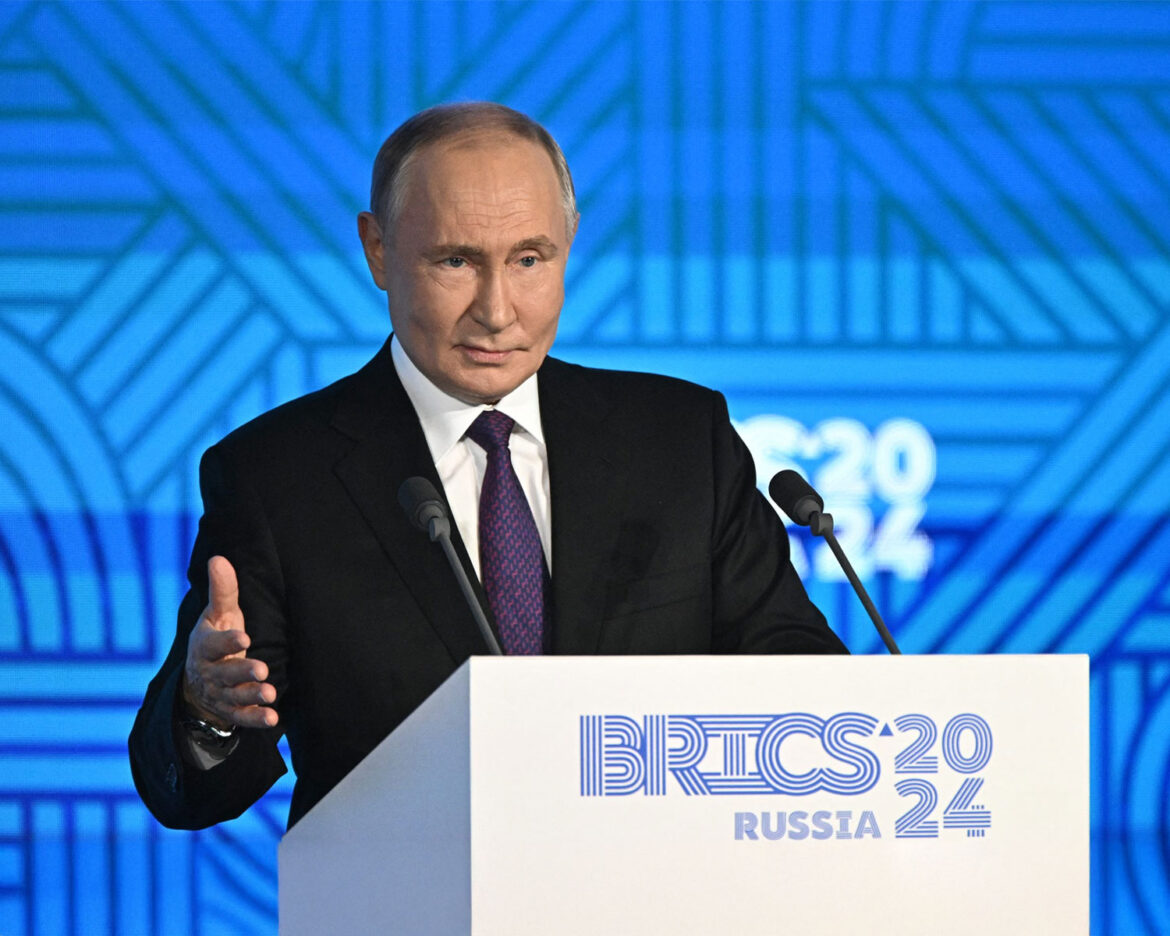Two dozen world leaders convened in Russia on Tuesday for the highly anticipated BRICS summit, a gathering of emerging economies that the Kremlin hopes will challenge Western “hegemony.” The three-day summit, held in the western city of Kazan from October 22 to 24, marks the largest diplomatic event in Russia since the onset of its military campaign in Ukraine in 2022.
Russian President Vladimir Putin, who has faced increasing isolation from Western powers, is using the summit to showcase Moscow’s strong international alliances. Key leaders attending include Chinese President Xi Jinping, Indian Prime Minister Narendra Modi, and Turkish President Recep Tayyip Erdogan, among others. Russian media confirmed that Putin, Modi, and South African President Cyril Ramaphosa had already arrived, while Chinese state broadcaster CCTV announced Xi’s arrival.
BRICS Expansion and New Alliances
The BRICS bloc, originally comprising Brazil, Russia, India, China, and South Africa, has become a focal point of Russian foreign policy. With Moscow’s backing, the group has expanded to include emerging nations like Egypt and Iran, reinforcing Russia’s efforts to build a global counterbalance to Western economic and political power.
One of the main topics on the summit’s agenda is Putin’s proposal for a BRICS-led payment system, which aims to rival the SWIFT financial network. Russia was cut off from SWIFT in 2022 as part of international sanctions, and the Kremlin views this summit as an opportunity to reduce dependence on Western-dominated financial systems.
The conflict in the Middle East is also expected to feature prominently in discussions, with Moscow aiming to leverage its growing ties with China, Iran, and North Korea.
Western Concerns and Strategic Shifts
While the United States has downplayed the idea that BRICS could become a “geopolitical rival,” it has expressed concern about Russia’s increasing diplomatic leverage amid the ongoing Ukraine conflict. Moscow has been steadily advancing in eastern Ukraine and tightening relations with countries that share adversarial stances toward the West.
Political analysts suggest the Kremlin is determined to show that Russia is far from isolated. Konstantin Kalachev, a Moscow-based political expert, commented, “By gathering the BRICS group in Kazan, the Kremlin aims to demonstrate that Russia still has significant global partners and allies.”
Security Measures and Global Attention
Heightened security has been reported in Kazan and the surrounding Tatarstan region, which lies around 1,000 kilometers from the Ukraine border. Local authorities have restricted movement around the city center, advised residents to stay home, and temporarily relocated university students from dormitories. The region has previously been targeted by Ukrainian drone attacks.
Putin is scheduled to hold individual meetings with Modi, Xi, and other key leaders, including Egyptian President Abdel Fattah el-Sisi and Iranian President Masoud Pezeshkian. On Wednesday, talks will also be held with Turkish President Erdogan.
UN Secretary-General Antonio Guterres is making his first visit to Russia since April 2022 and will meet with Putin on Thursday.
Challenges and Internal Divisions
Despite its growing influence, the BRICS group faces internal divisions, particularly between India and China, two key members with long-standing tensions. Turkey, a NATO member with complex ties to both Russia and the West, has expressed interest in joining the bloc, further adding to the complexities within the group.
Brazilian President Luiz Inácio Lula da Silva, originally slated to attend, canceled his trip after suffering a minor brain hemorrhage, though his absence does not appear to diminish the significance of the summit.
As the BRICS summit unfolds, the world will be watching closely to see whether Russia can successfully use this platform to challenge Western dominance and solidify its vision of a “multipolar world.”



